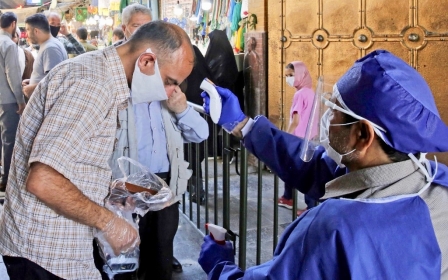Coronavirus: Iran will reimpose restrictions if health rules not observed, Rouhani says

Iran will reimpose restrictions to stem a surge in coronavirus cases if health regulations are not observed, President Hassan Rouhani said on Saturday.
After gradually relaxing its lockdown since mid-April, Iran has seen a sharp rise of new daily infections in recent weeks, Reuters reported.
"The respect of measures by our dear people has been great, up to 80 percent or more" of citizens played by the rules between 20 April and 20 May, Rouhani said, citing a report, according to AFP.
Still, it was "disturbing" to see that this proportion "has greatly diminished... with only 18 to 20 percent of people respecting" the rules now, the president said in a live televised speech.
With 2,410 new cases on Saturday, the total has reached 184,955. With the deaths of 71 people in the past 24 hours, total fatalities stand at 8,730, the health ministry said.
"If there is no cooperation, we will have to reimpose the restrictions," Rouhani said, adding that adherence to the health protocols were needed "in order to keep businesses open".
Tehran faced stiff resistance from hard-line clerics before it succeeded to close holy shrines in mid-March. The closures sparked demonstrations with angry crowds storming the shrines of Imam Reza in Mashhad and Fatemeh Massoumeh in Qom.
Shia pilgrims from all over the world visit the shrines, which may have contributed to the initial spread of the virus.
"Officials must make greater efforts - reports on mask-wearing, social distancing and collective prayer are not satisfactory" at the shrines, Rouhani said.
Since announcing its first cases in the Shia holy city of Qom in February, Iran has struggled to contain what quickly became the Middle East's deadliest outbreak of the Covid-19 respiratory disease.
There has been scepticism at home and abroad about Iran's official figures amid concerns the real toll could be much higher.
Middle East Eye delivers independent and unrivalled coverage and analysis of the Middle East, North Africa and beyond. To learn more about republishing this content and the associated fees, please fill out this form. More about MEE can be found here.





